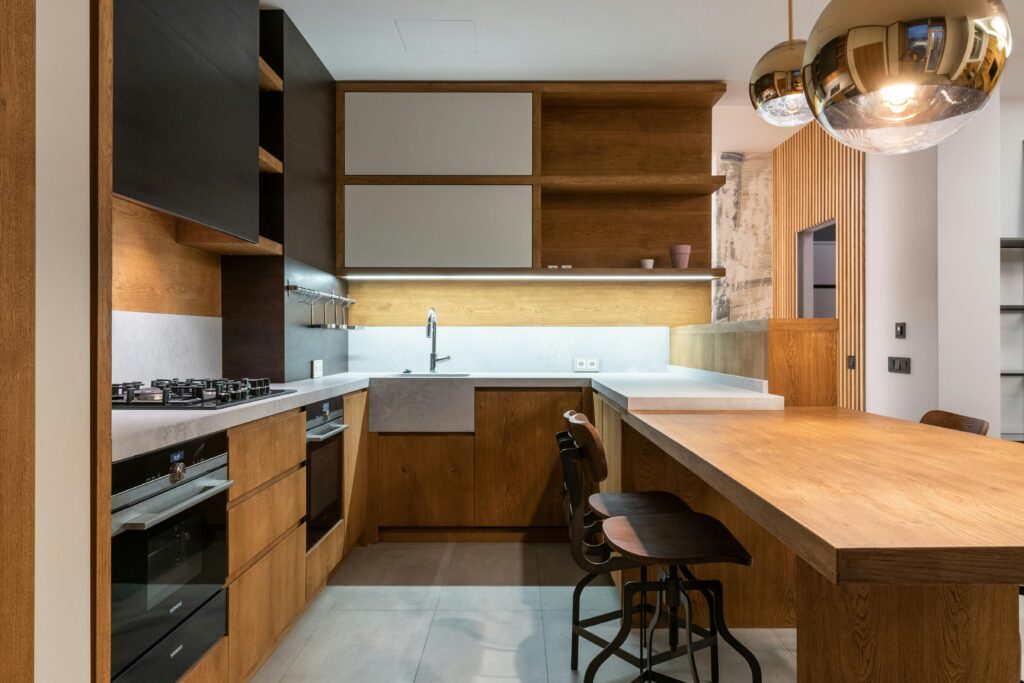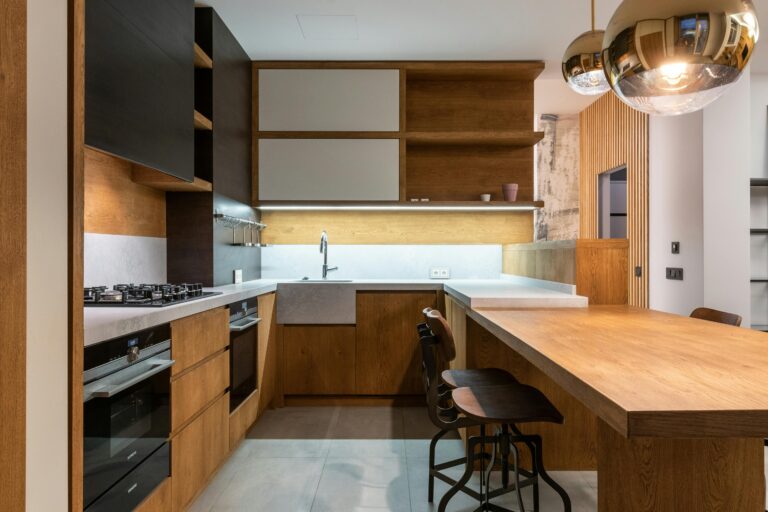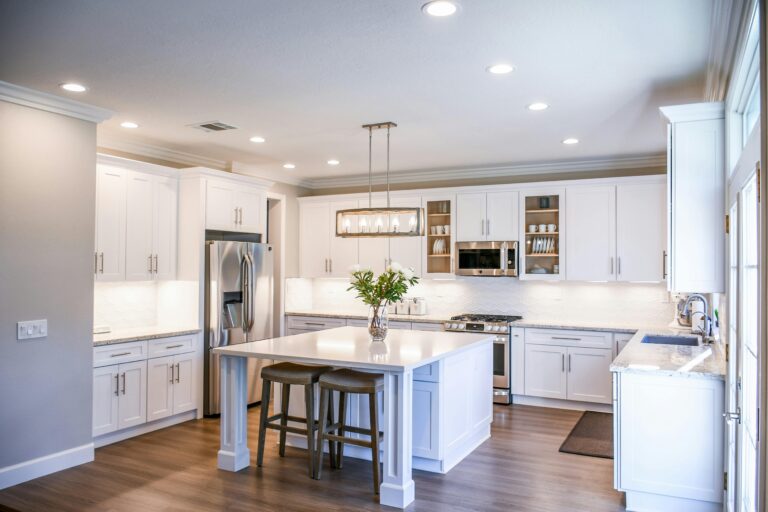Introduction to Smart Kitchen Appliances
With the speed at which technology is developing these days, smart kitchen equipment is revolutionizing our cooking and kitchen management practices. These cutting-edge gadgets claim to improve efficiency, convenience, and the overall culinary experience. But with so many alternatives, it is important to consider if these appliances are worth the investment. Let us investigate whether smart kitchen equipment lives up to the hype and what makes them so alluring.
“Smart kitchen equipment is your new culinary assistant, turning your kitchen into a hub of ease and invention. They are not just gadgets.”
What are smart kitchen appliances?
Modern appliances with smart design are meant to communicate with the network in your house to enable automation and remote control. They can be controlled by voice assistants, touchscreens, and smartphone apps. They connect via Wi-Fi or Bluetooth. These gadgets range from ovens that you can pre-heat from your phone to refrigerators that alert you when food is low.
Comparing this technology to conventional kitchen appliances, one can see a considerable advancement. Kitchen appliances were primarily mechanical or manual at first, but with the introduction of smart technology, features like automated processes, real-time monitoring, and remote control have become available. The increasing need for connectivity and ease in our daily lives is met by these developments.
Why Smart Kitchen Appliances Are Worth It
Convenience and Efficiency
The degree of convenience that smart kitchen appliances provide is among the strongest arguments for investing in them. Imagine having the ability to make a fresh pot of coffee or preheat your oven while you are still traveling home. With smart appliances, you can operate multiple features from your smartphone, freeing you more time to enjoy your meal and less time to maintain your kitchen.
Smart refrigerators, for example, may notify you when your milk is going bad or when you need to buy more goods, which will save you time and effort when you go grocery shopping. Your daily routine is streamlined by this level of efficiency, which lessens the work involved in cooking and meal preparation.
Energy Savings and Sustainability
The energy economy is another consideration in the design of smart appliances. Many have features like energy-saving modes and automated shut-off capabilities that help lower energy usage. Smart dishwashers may adapt their water usage based on the size of the load, and ovens can be configured to consume only the amount of energy required for cooking.
By purchasing these appliances, you support a more sustainable lifestyle in addition to reducing your utility costs. For many environmentally concerned consumers, a lower carbon footprint is a key issue when it comes to reduced energy consumption.
By purchasing these appliances, you support a more sustainable lifestyle in addition to reducing your utility costs.
Enhanced Cooking Experiences
Because smart appliances have cutting-edge features that regular appliances do not, they can improve your culinary experience. These consist of real-time cooking progress updates, guided recipes, and precision cooking. To ensure flawless results every time, a smart oven, for example, may automatically alter its temperature based on the recipe you are following.
By enabling you to cook food at precise temperatures, precision cooking tools—such as intelligent sous-vide machines—can greatly enhance the quality of your meals. These characteristics make it simpler for cooks of all skill levels to produce results worthy of a professional kitchen with little effort.
Precision Cooking
Precision cooking is one of the most notable aspects of many smart kitchen appliances. For example, sophisticated sensors and algorithms are used by smart ovens and sous-vide appliances to guarantee that your food is prepared to perfection. This implies that you may cook food to just the doneness you want, be it a softly poached egg or a properly seared steak.
This equipment’s precision has the power to turn cooking from an art form into a science. This lessens the possibility of overcooking or undercooking your food while also enhancing the flavor and texture of your meals.
Smart Features and Connectivity
A variety of connectivity possibilities are included with smart kitchen equipment to improve their performance. Numerous appliances may be managed with basic speech commands thanks to voice assistants like Google Assistant or Amazon Alexa. Moreover, routines that further enhance the intelligence of your kitchen can be established thanks to integration with home automation systems.
For instance, you could program your smart oven to preheat as soon as you leave the workplace or your smart coffee maker to begin brewing as soon as your alarm goes off. Your cooking routine will now be much more customizable and convenient thanks to these features.
Popular Smart Kitchen Appliances
Tech-savvy homeowners frequently choose smart refrigerators. These freezers have voice control capabilities, internal cameras, and touchscreens among their features. In addition to recipes and family calendars, the touchscreen may be used to stream TV shows or music. When grocery shopping, the ability to remotely inspect the contents of your refrigerator thanks to the interior cameras is really helpful.
Key Features
Meal planning support, expiration date tracking, and inventory management are a few of the main functions of smart refrigerators. They can even recommend meals based on what you already have in stock and notify you when you are running out of necessities. Additionally, a lot of models have cutting-edge cooling technology that extends the shelf life of your food.
Top Brands and Models
Among smart refrigerators, Samsung, LG, and Whirlpool are the most popular brands. For example, Samsung’s Family Hub refrigerator is well-known for its sizable touchscreen that doubles as a command center for the family. With features like knock-on glass panels and smart home connections, LG’s InstaView refrigerator is a great option for tech lovers.
The purpose of smart ovens and ranges is to improve the accuracy and ease of cooking. These appliances frequently have guided cooking aids, automated cooking programs, and remote control features. This enables you to oversee your cooking from any location, guaranteeing that your meals are prepared to absolute perfection.
Key Features
Remote preheating, temperature management, and smartphone-adjustable cooking timers are just a few of the features that smart ovens frequently have. Additionally, some models have advanced cooking modes like air fry and convection bake, which make it easier to do a range of cooking techniques.
Top Brands and Models
Advanced smart ovens and ranges from brands like KitchenAid, GE, and Bosch are among the best available. For instance, the Profile line from GE features models that can be controlled remotely using a smartphone app, giving you the ability to monitor the cooking process and oven settings even while you are not at home.
For individuals who find it impossible to begin their day without a cup of coffee, smart coffee makers provide an array of practical functions. These machines may be set to begin brewing at predetermined times, and several models even let you operate them from a distance via a smartphone app.
Key Features
Temperature control, preset brewing options, and customizable brew strength are common features of smart coffee machines. While some models provide features like automatic milk frothing or pre-soak settings for improved flavor extraction, others have built-in grinders for fresh coffee beans.
Top Brands and Models
Smart coffee makers from well-known brands like Hamilton Beach, Nespresso, and Keurig are available. For instance, Keurig’s K-Elite coffee machine is a flexible option for coffee lovers because it has programmable settings and a variety of brew sizes.
How to Choose the Right Smart Kitchen Appliances
Assessing Your Needs
Determine your unique demands and preferences before purchasing smart kitchen appliances. Think about things like your cooking style, the size of your kitchen, and the features that will be most useful to you. This will assist you in choosing appliances that suit both your budget and lifestyle.
Budget Considerations
Budgeting is essential because smart kitchen gadgets can be purchased at a variety of pricing points. Even though certain appliances might cost more upfront, their convenience and energy-saving features can save money over time. When selecting your choice, be sure to balance the possible advantages against the up-front expenditures.
Compatibility with Existing Appliances
Make sure the smart appliances you select work with the home automation system and kitchen configuration you currently have. For instance, to get the most out of your appliances, if you already have a smart home system, search for ones that can easily interact with it.
Installation and Maintenance
Think about the upkeep and installation needs for smart appliances. While some devices may be set up by the user, others might need to be installed by a professional. Furthermore, keep in mind the manufacturer’s support services and any continuing maintenance requirements.
Potential Drawbacks of Smart Kitchen Appliances
Cost Considerations
Although they have many advantages, smart kitchen gadgets can also be pricey. These appliances frequently have greater starting costs than conventional appliances, and certain types may incur additional expenses for maintenance and installation. It is critical to determine if the benefits justify the cost outlay.
Privacy and Security Risks
Your home network may be connected to smart appliances, which may pose security and privacy issues. To secure your personal information, make sure your devices have strong security measures and adhere to best practices. This involves creating strong, one-of-a-kind passwords and updating software regularly.
Technology Overload
There is a risk of technological overload due to the proliferation of smart devices. It can be difficult to manage several linked gadgets, and it might take some work to incorporate them into your regular schedule. Think about if the advantages of smart appliances outweigh any possible complexity they might cause.
Future Trends in Smart Kitchen Technology
Advancements in AI and Machine Learning
Developments in machine learning and artificial intelligence (AI) will probably have a significant impact on the direction of smart kitchen gadgets. With the help of these technologies, appliances will be able to learn from user behavior and make ever more insightful choices. For example, a smart oven might evaluate your cooking preferences and make recipe or technique recommendations automatically.
Integration with Smart Home Systems
The seamless integration of kitchen equipment with smart home systems is expected to increase in prevalence. It is anticipated that in the future, smart appliances will have improved interoperability with other smart devices, enabling a wider range of home automation and control.
If you want to learn about 10 the best kitchen appliances for small spaces then click on this –best kitchen appliances.










